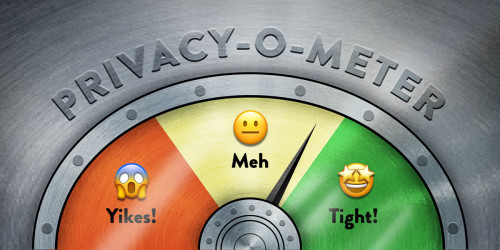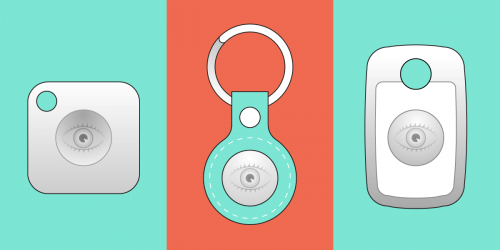Privacy laws are only as strong as their enforcement. In California, the state’s privacy agency recently issued its largest-ever fine for violation of the state’s privacy law—and all because of a consumer complaint.
The state’s privacy law, the California Consumer Privacy Act or CCPA, requires many companies to respect California customers' and job applicants' rights to know, delete and correct information that businesses collect about them, and to opt-out of some types of sharing and use. It also requires companies to give notice of these rights, along with other information, to customers, job applicants, and others. (Bonus tip: Have a complaint about something else, such as a data breach? Go to the CA Attorney General.)
If you’re a Californian and think a business isn’t obeying the law, then the best thing to do is tell someone who can do something about it. How? It’s easy. In fewer than a dozen questions, you can share enough information to get the agency started.
Start With the Basics
First, head to the California Privacy Protection Agency’s website at cppa.ca.gov. On the front page, you’ll see an option to “File a Complaint.” Click on that option.
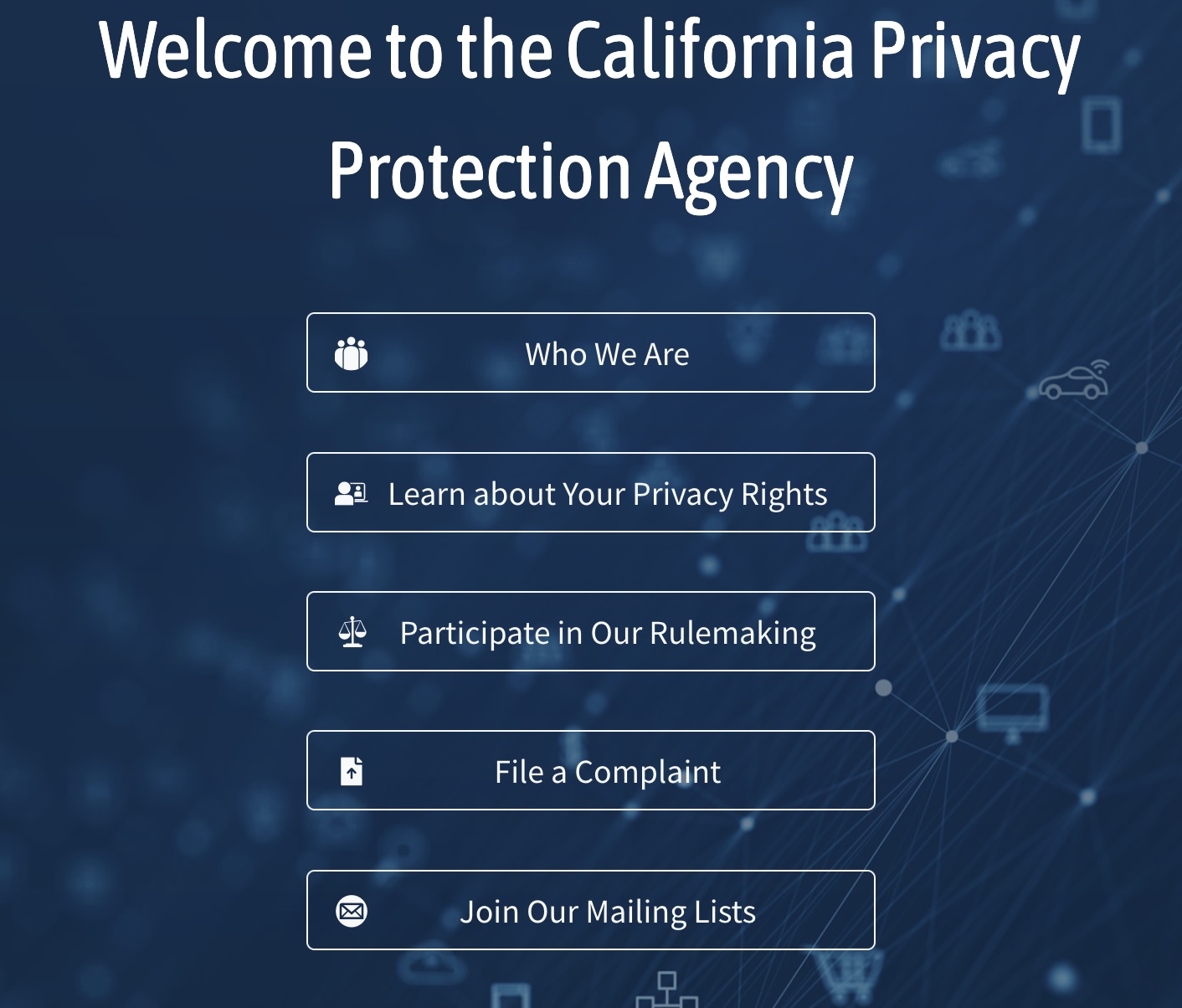
That button takes you to the online complaint form. You can also print out the agency’s paper complaint form here.
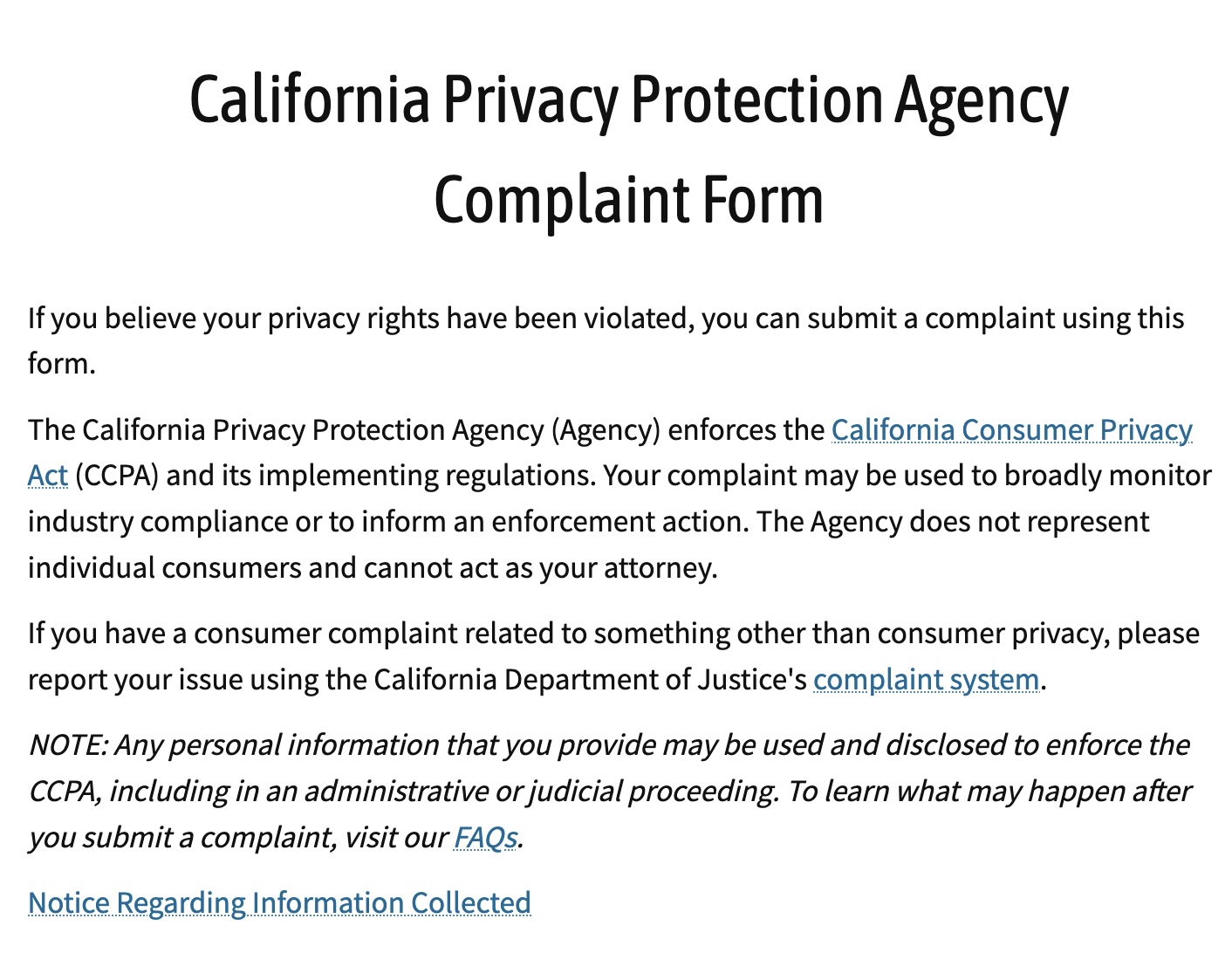
The complaint form starts, fittingly, by explaining the agency’s own privacy practices. Then it gets down to business by asking for information about your situation.
The first question offers a list of rights people have under the CCPA, such as a right to delete or a right to correct sensitive personal information. So, for example, if you’ve asked ABC Company to delete your information, but they have refused, you’d select “Right to Delete.” This helps the agency categorize your complaint and tie it directly to the requirements in the law. The form then asks for the names of businesses, contractors, or people you want to report.
It also asks whether you’re a California resident. If you’re unsure, because you split residency or for other reasons, there is an “Unsure” option.
Adding the Details
From there, the form asks for more detailed information about what’s happened. There is a character limit on this question, so you’ll have to choose your words carefully. If you can, check out the agency’s FAQ on how to write a successful complaint before you submit the form. This will help you be specific and tell the agency what they need to hear to act on your complaint.
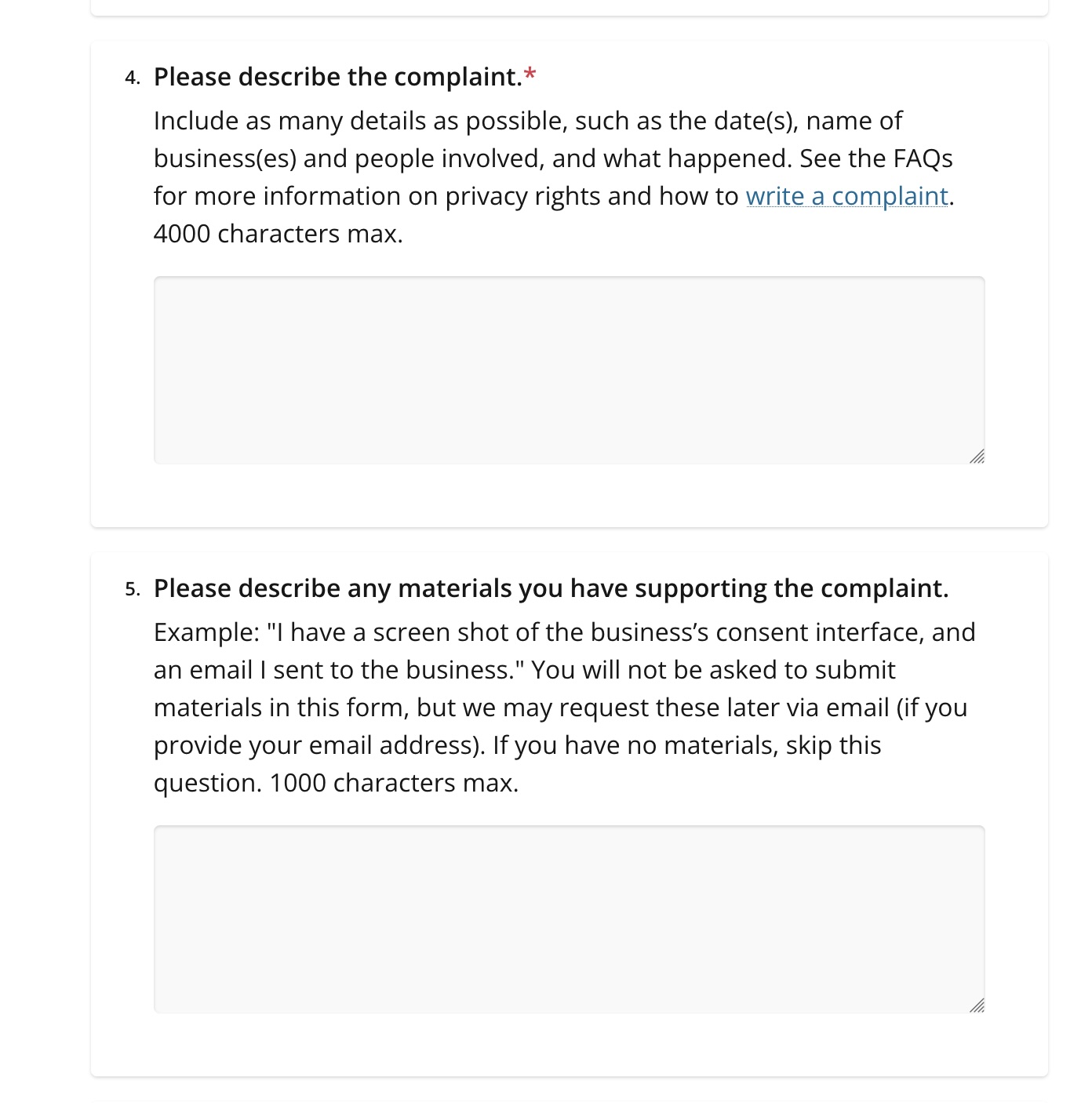
In the next question, include information about any proof you have supporting your complaint. So, for example, you could tell the agency you have your email asking ABC Company to delete your information, and also a screenshot of proof that they haven’t erased it. Or, say “I spoke to a person on the phone on this date.” This should just be a list of information you have, rather than a place to paste in emails or attach images.
The form will also ask if you’ve directly contacted the business about your complaint. You can just answer yes or no to this question. If it’s an issue such as a company not posting a privacy notice, or something similar, it may not have made sense to contact them directly. But if you made a deletion request, you probably have contacted them about it.
Anonymous or Not?
Finally, the complaint form will ask you to make either an “unsworn complaint” or a “sworn complaint.” This choice affects how you’ll be involved in the process going forward. You can file an anonymous unsworn complaint. But that will mean the agency can’t contact you about the issue in the future, since they don’t have any of your information.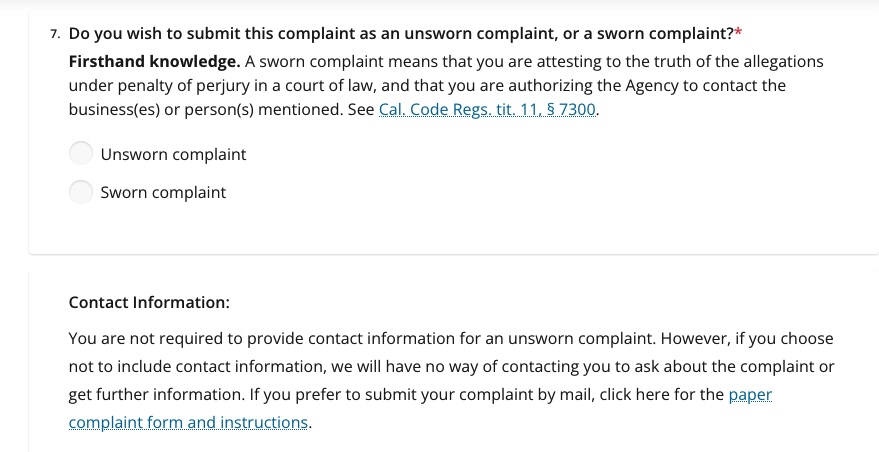
For a sworn complaint, you have to provide some contact information and confirm that what you’re saying is true and that you’d swear to it in court.
Just because you submit contact information, that doesn’t mean the agency will contact you. Investigations are usually confidential, until there’s something like a settlement to announce. But we’ve seen that consumer complaints can be the spark for an investigation. It’s important for all of us to speak up, because it really does make a difference.




